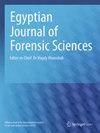埃及泌尿科医生的远程医疗实践:知识、态度和医疗法律问题
IF 1.3
Q3 MEDICINE, LEGAL
引用次数: 0
摘要
泌尿科医生在诊断、治疗、指导和预防疾病方面使用和实施远程医疗的情况在全球范围内日益增多。这种做法涉及许多临床、法律和伦理问题。这是一项基于匿名在线问卷的横断面研究,旨在评估目前埃及泌尿科医生对使用远程医疗的认识和态度。共有 108 名埃及泌尿科医生填写了调查问卷,内容包括社会人口学数据、泌尿科医生的知识、对远程医疗的态度以及常见问题和障碍。在所有样本中,75.9% 的参与者在 COVID-19 大流行之前没有使用过远程医疗模式。近 66.7% 的参与者没有接受过关于使用远程医疗的正规医学培训。约 62% 的参与者在社交媒体上使用个人账户,73.1% 的远程会诊是为了评估放射学和实验室数据。与会者强调了一些担忧,如可能存在的渎职风险(79.6%)、诽谤(72.2%)和保存患者记录(71.3%)。泌尿科医生对远程医疗提出了许多相当大的障碍,如缺乏病人技术技能(84.3%)、缺乏法规或法律(76.9%)、保险报销(57.4%)和缺乏行政支持(53.7%)。大多数参与者对远程泌尿学的优势持肯定态度。每周接诊病例数与积极态度总分之间存在显著的统计学差异。虽然大多数参与者都使用了远程医疗,但通过研究也发现了许多障碍。忽视法律、伦理、个人和患者问题也可能危及远程医疗的未来。完善的卫生政策、正规的教育和实施规范的远程医疗法律是基础。本文章由计算机程序翻译,如有差异,请以英文原文为准。
Telemedicine practice among Egyptian urologists: knowledge, attitude, and medicolegal concerns
The usage and implementation of telemedicine by urologists to diagnose, treat, mentor, and prevent diseases have grown worldwide. Numerous clinical, legal, and ethical issues are addressed by this practice. This is a cross-sectional study based on an anonymous online questionnaire, aimed to assess the current urologists’ knowledge and attitude towards telemedicine use in Egypt. A total of 108 Egyptian urologists filled out the questionnaire which included sociodemographic data, urologist knowledge, attitude regarding telemedicine, and common concerns and barriers. Out of the total sample, 75.9% of participants did not use telemedicine modalities until COVID-19 pandemic. Nearly 66.7% of participants did not receive formal medicolegal training on using telemedicine. About 62% of participants used personal accounts on social media, and 73.1% of teleconsultations were to assess radiological and laboratory data. Several concerns were highlighted such as possible malpractice risks (79.6%), defamation (72.2%), and keeping patient records (71.3%). Urologists raised many considerable barriers regarding telemedicine, such as lack of patient technology skills (84.3%), absence of regulations or laws (76.9%), insurance reimbursement (57.4%), and lack of administrative support (53.7%). Most of the participants have a positive impression of the advantages of tele-urology. There was a statistically significant difference between the number of cases seen per week and positive total attitude score. Although most participants practiced telemedicine, many obstacles were highlighted through the study. Ignoring legal, ethical, personal, and patient issues may also jeopardize the future of telemedicine. Well-established health policies, formal education, and the implementation of regulated laws of telemedicine are fundamental.
求助全文
通过发布文献求助,成功后即可免费获取论文全文。
去求助
来源期刊

Egyptian journal of forensic sciences
MEDICINE, LEGAL-
CiteScore
2.00
自引率
0.00%
发文量
51
审稿时长
17 weeks
期刊介绍:
Egyptian Journal of Forensic Sciences, the official publication of The International Association of Law and Forensic Sciences (IALFS), is an open access journal that publishes articles in the forensic sciences, pathology and clinical forensic medicine and its related specialities. The journal carries classic reviews, case studies, original research, hypotheses and learning points, offering critical analysis and scientific appraisal.
 求助内容:
求助内容: 应助结果提醒方式:
应助结果提醒方式:


